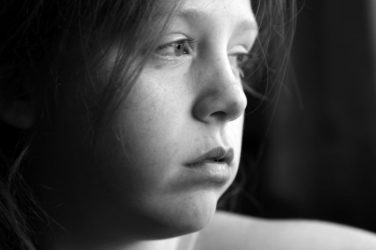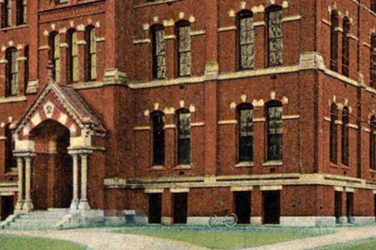Are you a post-graduate sick of scrolling through job adverts and seeing nothing that seems suited to you? Someone looking for a career change? Or merely someone fostering a curiosity for what jobs Europe and the world has to offer? In our recurring series for Legs, E&M explores what professions Europe has to offer beyond what the eye can see. In this issue, we asked a medical biologist what her job entails.
Hi Pénélope! Thanks for agreeing to speak to E&M about your job. So, what exactly is a medical biologist?
In France, a medical biologist* is a doctor who specialises in the diagnosis of diseases relying on the analysis of body fluids, such as blood samples or urine analysis for instance.
This work is divided into multiple specialisations. Here are a few examples:
- Immunology analyses functions of the immune system, for instance the diagnosis of immune deficit
- Haematology analyses blood cells, for instance the diagnosis of blood cancer;
- Biochemists looks at blood chemistry, including for instance vitamins dosage or cholesterol level;
- Genetics is the study of genes and their expressions using mostly blood samples;
- Bacteriology cultivates samples of body fluids to detect infectious diseases; Virology uses similar techniques but to detect viral disease; etc.
And what exactly do you do then?
I am a medical biologist resident, specialised in genetics. At the moment, I work in a hospital for children in a constitutional genetics department. As opposed to cancerous mutations, genetic diseases change the DNA in all of your body, not just a certain part. This is what constitutional genetics is about – finding these mutations.
In my team, I study patients’ DNA to detect a genetic cause for their symptoms. I receive blood samples sent by paediatricians who believe they have detected symptoms of a genetic disease. These can be of any kind as I work in a rather big hospital dealing with all sorts of medical conditions, so I may work with autism, genetic deafness, mucoviscidosis, etc. My job is to find out if the patient’s genes have the mutation responsible for the given disease. I work in the neurological development sector, and in particular with the fragile X syndrome which is the most frequent cause of genetic mental delay among boys.
Genetics has evolved fast in recent times. Today, we use New Generation Sequencing (NGS). This means we can use a gene panel for a type of disease. Let me explain with an example: a child has a development delay, for which we want to find out if there is a genetic cause. We can test a blood sample on a gene panel for developmental delays, using a single analysis to scan between 200 and 400 genes, comparing them with the reference genome (reference genes of a healthy human body) to detect a mutation. This increases the probability of detecting something, without having to carry out several individual tests.
I should add that my laboratory also carries out diagnosis for all these diseases in pre-natal diagnosis. A pre-natal diagnosis is carried out in families where there is a known genetic disease. Amniotic fluid is sampled from the mother and then analysed using techniques I described earlier. This allows to interrupt the pregnancy if the foetus is diagnosed with the disease. In France, this is regulated by bioethics laws. This means every request for a pre-natal diagnosis is presented to a special committee at the hospital before it can be accepted, or not, according to the law. The law stipulated that this can only be done in case of a severe disease incurable at the time of diagnosis.
This is fascinating… What is it you like best about what you do?
My favourite aspect of this job is consultations with patients to explain the diagnosis. I don’t lead those consultations (yet) but I enjoy explaining the disease and its mechanisms, the transmission risks etc. It can be very hard to give a negative diagnosis, but I like the procedure because there is an exchange, an opportunity to reassure and the possibility to support patients.
Another aspect I enjoy is the continuous ethical questioning underlying the practice of genetics.
And so, what is the biggest challenge about your profession?
Well, that’s it: not drifting towards eugenics – because today we can diagnose everything and control everything. The challenge is, therefore, to know where the limit is.
Genetics is a very young specialisation, it is only about 50 years old, so it is still being developed. In France, bioethics laws ensure rather good regulations of the practice but that is not the case everywhere, so the danger is real. The challenge is to make sure genetics is not used to any other end than the wellbeing of families.
What was your dream job when you were younger?
Sadly, I cannot remember. I think the sad thing is that as a child I was merely trying to find the right answer to that question, i.e. the answer that would satisfy the adult who asked the question.
What did you study to become a medical biologist specialised in genetics?
The short answer is I went to medical school. The longer version goes as follows: at the end of my first year of university, I took an exam to get into medical school. At the end of my sixth year, I had my final exam to become a resident in medicine. This is when I chose to become a medical biologist. The next step was four years of residency, with eight different ‘stages’ in various departments.
I am currently in my third year of residency. I still have one more year to do as a resident, while writing my doctoral thesis, before I can be called a doctor. At the moment, I am aiming to work in an oncogenetics hospital department to study DNA mutations responsible for cancers.
What would you say to someone thinking of starting this career path?
Well, I hope you’re ready to work hard because you’ll need to hang on: it’s at least a decade of studies with a lot of work, sacrifices and mental distress. But these all happen in parallel with very powerful moments of feeling a sense of achievement. Unlike many of my friends, I have never wondered in the past ten years if I was useful or if my job was meaningful – even when we are not in contact with patients, we are aware that we contribute to helping society.
* We used the term ‘medical biologist’ to translate the French term médecin biologiste
Cover photo: Germs under Microscope (Pixabay)










